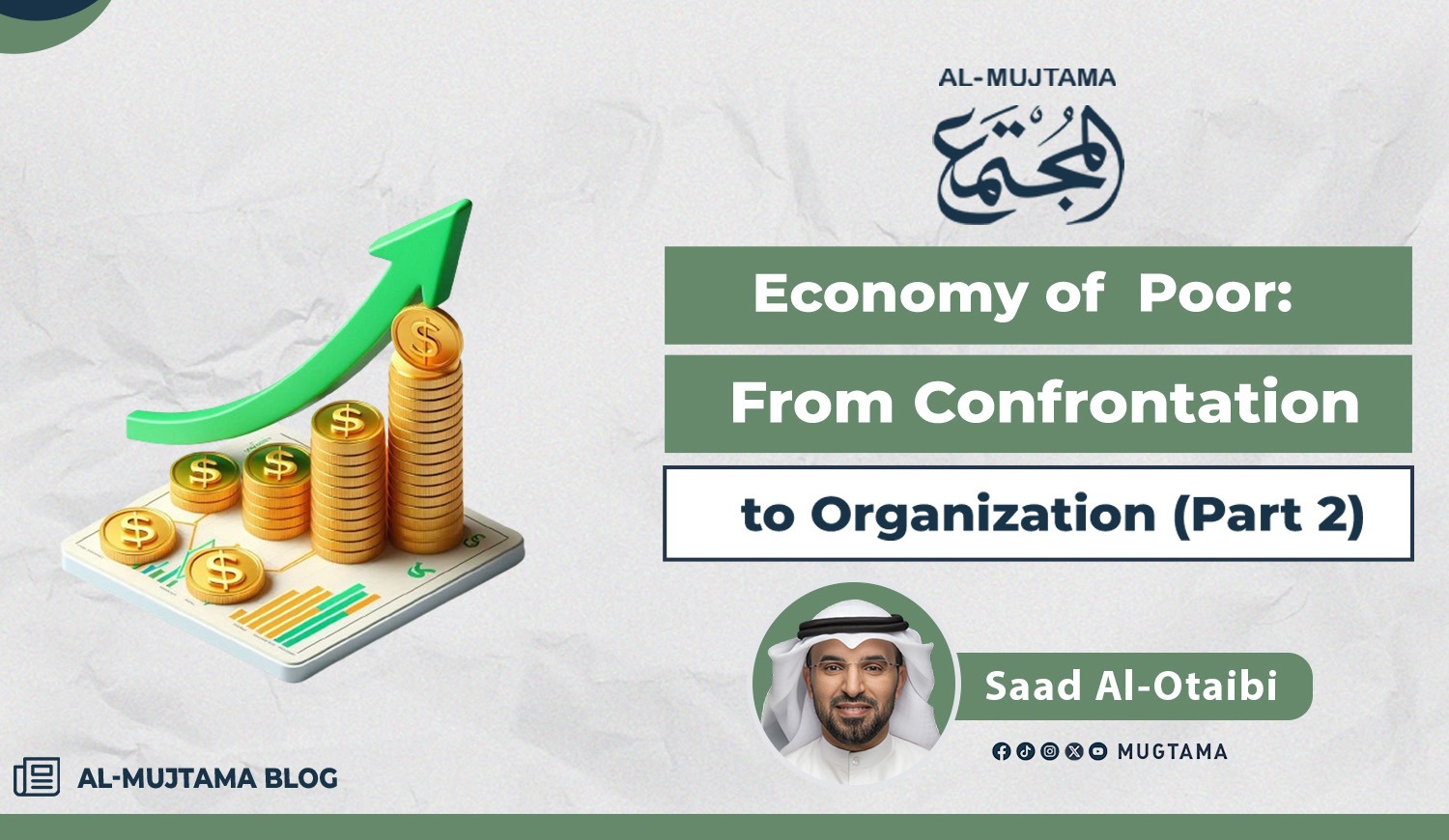Economy of the Poor: From Confrontation to Organization (Part 2)

Talking about the “economy of the poor” is no longer merely
an observation of a social phenomenon — it has become a strategic subject at
the heart of global development. Poverty is not an isolated individual
condition, but a widespread phenomenon that affects markets, public policies,
and social stability. According to World Bank reports (2024), more than 700
million people live on less than $2.15 a day, while nearly half of the world’s
population lives below the broader poverty line of $6.85 a day. These figures
do not merely reflect income deficiency; they reveal the existence of a whole
economy operating with its own mechanisms — one that must be taken seriously.
An Economy Born from
Necessity
In the face of resource scarcity, the poor
innovate survival mechanisms — from simple recycling of materials to building
economic networks based on trust and solidarity. As Banerjee and Duflo
explained in Poor Economics, the poor are not merely victims; they
possess complex life strategies that include dividing limited resources,
balancing between food and education, and relying on cooperative economies.
These innovations represent social capital that must not be overlooked.
Confrontation or
Organization?
A common mistake in development policies is
viewing the economy of the poor as a problem to be eradicated. In reality, this
economy represents the informal sector, which includes more than 60% of the
labor force in developing countries. Ignoring or fighting it leads to chaos and
loss of fairness. However, organizing it through:
- Simplifying licensing and administrative
procedures
- Providing microfinance and easy loans
- Integrating workers into social insurance and
healthcare systems
- Recognizing small projects as part of the formal
economy
…can transform this economy into a
productive force that supports growth and ensures stability.
The Economy in Times
of Crisis
Global crises have proven that the economy
of the poor is the most resilient. During the COVID-19 pandemic, for instance,
between 143 and 163 million additional people fell into poverty, yet the poor
managed to reorganize their lives through solidarity, neighborhood networks,
and local markets. Likewise, in conflict zones such as Gaza and Yemen, this
economy appears in simple forms — such as barter systems or reliance on
small-scale local production to secure basic living needs.
From Survival to
Empowerment
The key challenge is not in the survival of
the poor’s economy, but in transforming it into an economy of empowerment.
Charitable organizations and governments can lead this transformation by:
- Investing in micro-projects and linking them to
markets
- Training the poor in modern skills to enhance
their productivity
- Supporting community initiatives that promote
solidarity and sustainability
- Turning humanitarian aid into seed capital for
productive ventures
The experience of the Voices of the Poor
project — which documented the views of over 40,000 people in 50 countries —
confirms that the poor seek not only assistance but also dignity and the
ability to produce.
The Ethical and Human
Dimension
Organizing the economy of the poor is not
merely an economic option, but a humanitarian duty. Poverty breeds fragility,
and fragility opens the door to conflict and forced migration. Thus,
integrating the economy of the poor into development achieves social justice
and strengthens civil peace. It is, at the same time, an investment in the
future — as the poor represent a massive segment of consumers and producers if
given the right opportunities.
In Conclusion
The economy of the poor is an undeniable
reality. Trying to eliminate it leads to economic and social chaos, whereas
organizing it transforms it from a survival economy into one of empowerment. It
is not a burden on development but an opportunity to reshape a fairer and more
humane economic model. Here lies the shared responsibility of governments and
charitable institutions — to see the poor as partners in shaping tomorrow, not
merely as recipients of aid.
-------------------------------------------------------------
Read Also:










